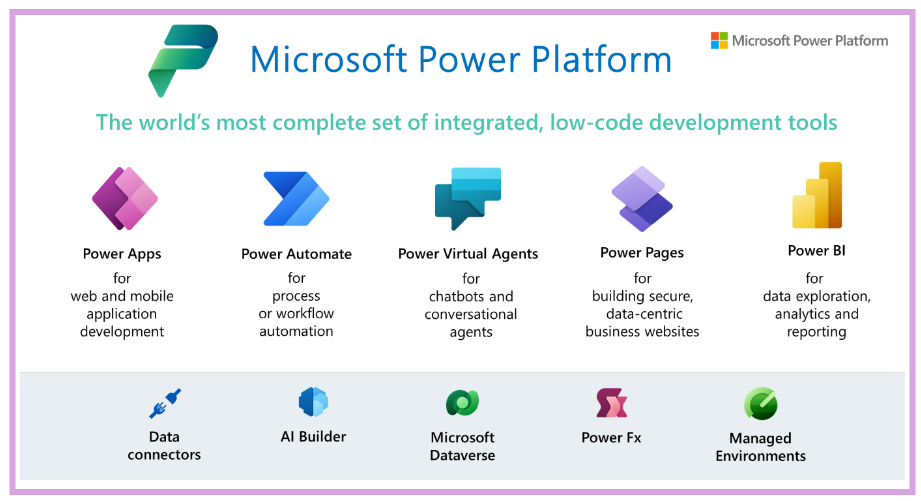Fond of making application but have zero knowledge in coding? No worries, we have got you covered. Here comes Microsoft Power Platform. It is basically low-code/no-code tool developed by Microsoft which helps users to build custom applications, automate business processes, analyze data, and create virtual agents with ease.
You might wonder why use “low-code” when you can learn traditional software development and create application? Or, even if we use power platform, Will this suit large-scale application which enterprises need? Or, will this application adhere to the security standards? And, what about scalability and complexity?
If you are having these questions, then you are at right place. Let us go one by one from your questions.
User-friendly Interface – One of the standout features of Power Apps is its intuitive and user-friendly interface. With a drag-and- drop design approach, users can easily create apps by assembling pre-built components, making the app development process accessible to individuals with varying technical backgrounds. Moreover there is no need of learning new language, understanding new framework, making api’s which will also cost you your time.
Real-world Use Cases – Illustrate real-world scenarios where Power Apps has made a significant impact, showcasing how organizations across different industries have leveraged the platform to solve specific challenges and enhance their operational efficiency.
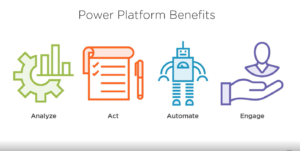 Security and Compliance – Security is a top priority for businesses, and Power Apps provides robust security features. With role-based access control and data loss prevention policies, organizations can ensure that sensitive information is protected, and compliance requirements are met.
Security and Compliance – Security is a top priority for businesses, and Power Apps provides robust security features. With role-based access control and data loss prevention policies, organizations can ensure that sensitive information is protected, and compliance requirements are met.
Cost Efficiency and Scalability – Power Apps offers a cost-effective solution for app development, eliminating the need for large investments in custom development projects. Additionally, the platform is scalable, allowing businesses to start small and expand as their needs evolve.
Integration with Microsoft 365 and Dynamics 365 – Power Apps seamlessly integrates with Microsoft 365 and Dynamics 365, enabling users to leverage data from these platforms. This integration enhances collaboration and ensures a smooth flow of information across different applications and services.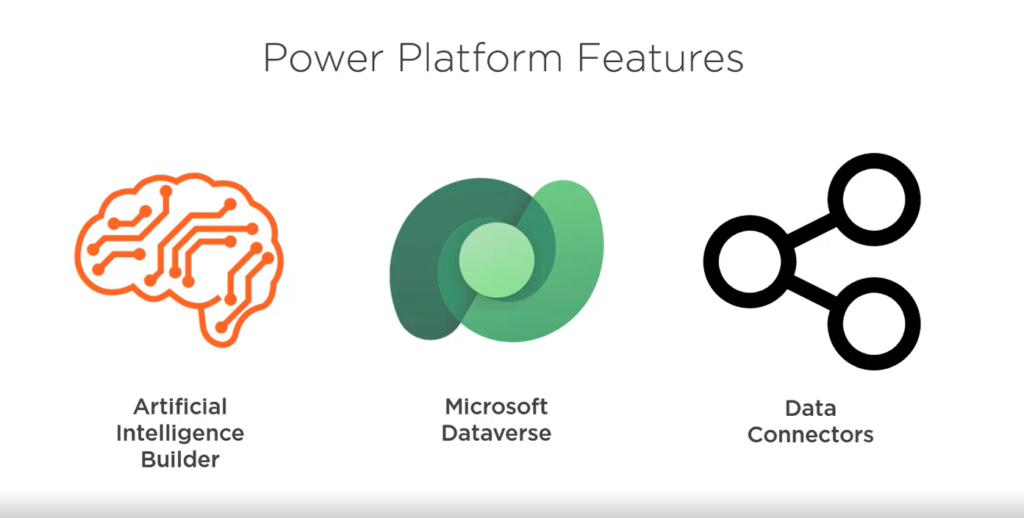
Data Connectivity – Power Apps supports a wide range of data connectors, allowing users to connect to various data sources such as SharePoint, SQL Server, Microsoft Azure, and more. This flexibility in data connectivity ensures that Power Apps can be integrated into existing workflows and systems.
Automating Workflows with Power Automate – Power Apps integrates seamlessly with Power Automate, Microsoft’s automation platform. This enables users to automate repetitive tasks and streamline business processes, improving efficiency and reducing manual effort.
AI Builder Integration – Power Apps incorporates AI Builder, a feature that enables users to add artificial intelligence capabilities to their applications without extensive coding. This empowers organizations to harness the power of AI for tasks such as image recognition, sentiment analysis, and prediction modeling.
Well convinced now. Let’s dive deep into Power Platform to understand its structure and workflows.
Power Platform has different components. Following is the list of components.
- Power Apps
- Power Automate
- Power BI
- Power Virtual Agents
- Power Pages
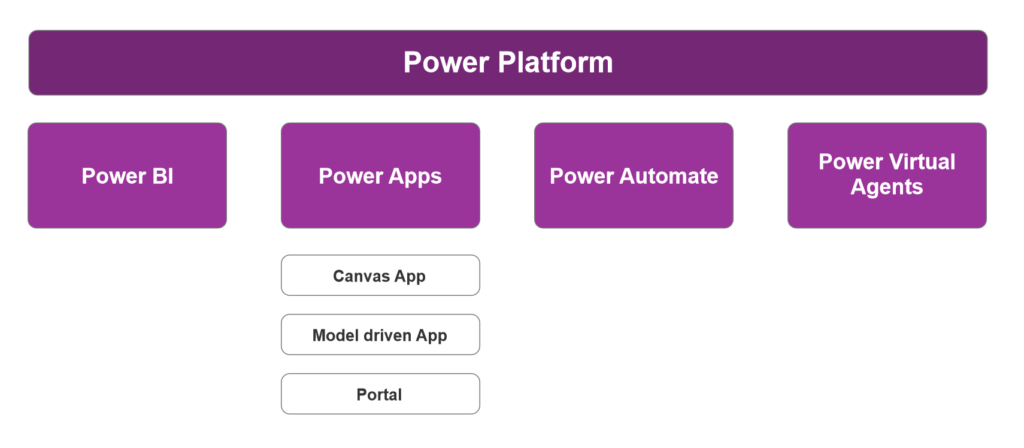
Power Apps :-
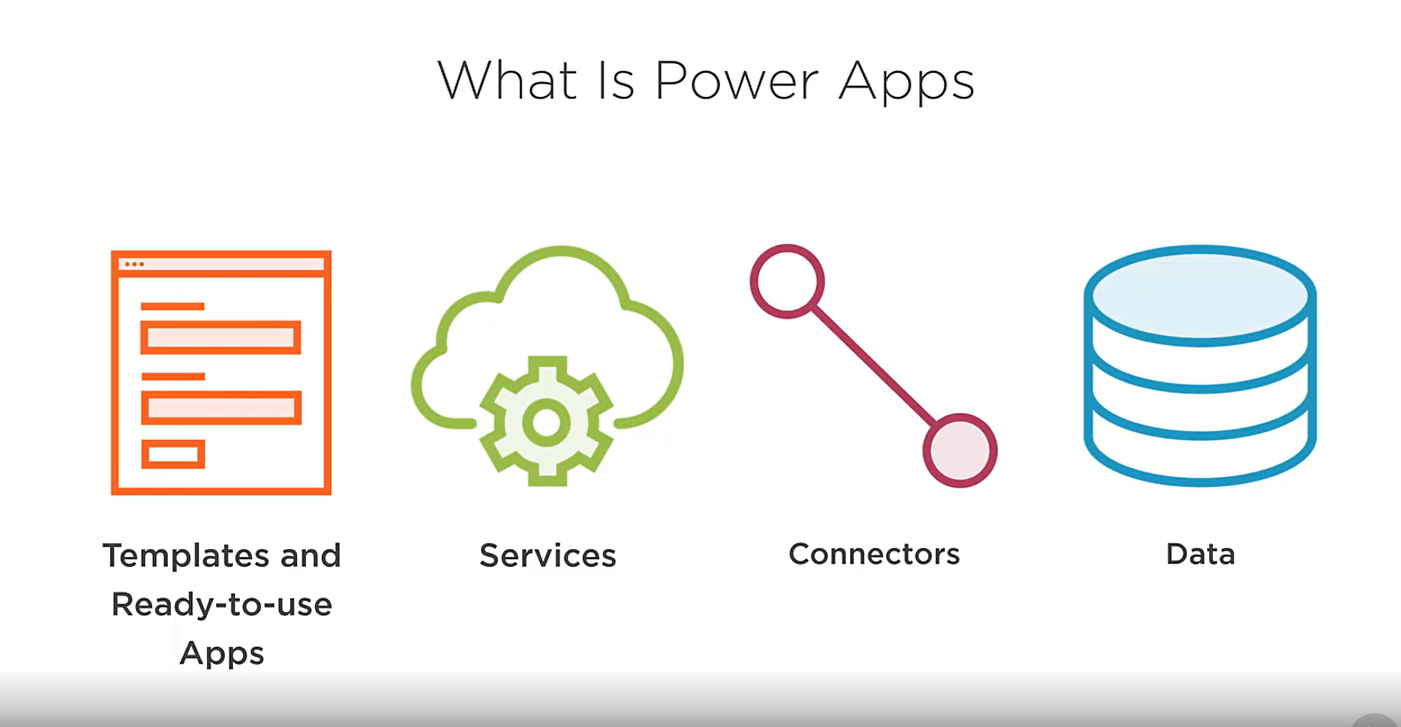
Power Apps is a suite of low-code/no-code development tools offered by Microsoft, enabling users to create custom business applications quickly and efficiently. With Power Apps, users can build apps for web, mobile, and tablet devices without the need for extensive coding knowledge, making it accessible to a wide range of users, including business analysts, power users, and citizen developers.
Power Apps is further divided into different types. Following are the types of apps.
- Canvas App – Canvas apps in Power Apps are a type of application that allows users to create custom apps for their business needs without writing code. They are highly customizable and provide a blank canvas for users to design their app interfaces using drag-and-drop functionality.
- Model-Driven apps – Model-driven apps in Power Apps provide a more structured approach to app development compared to Canvas apps.
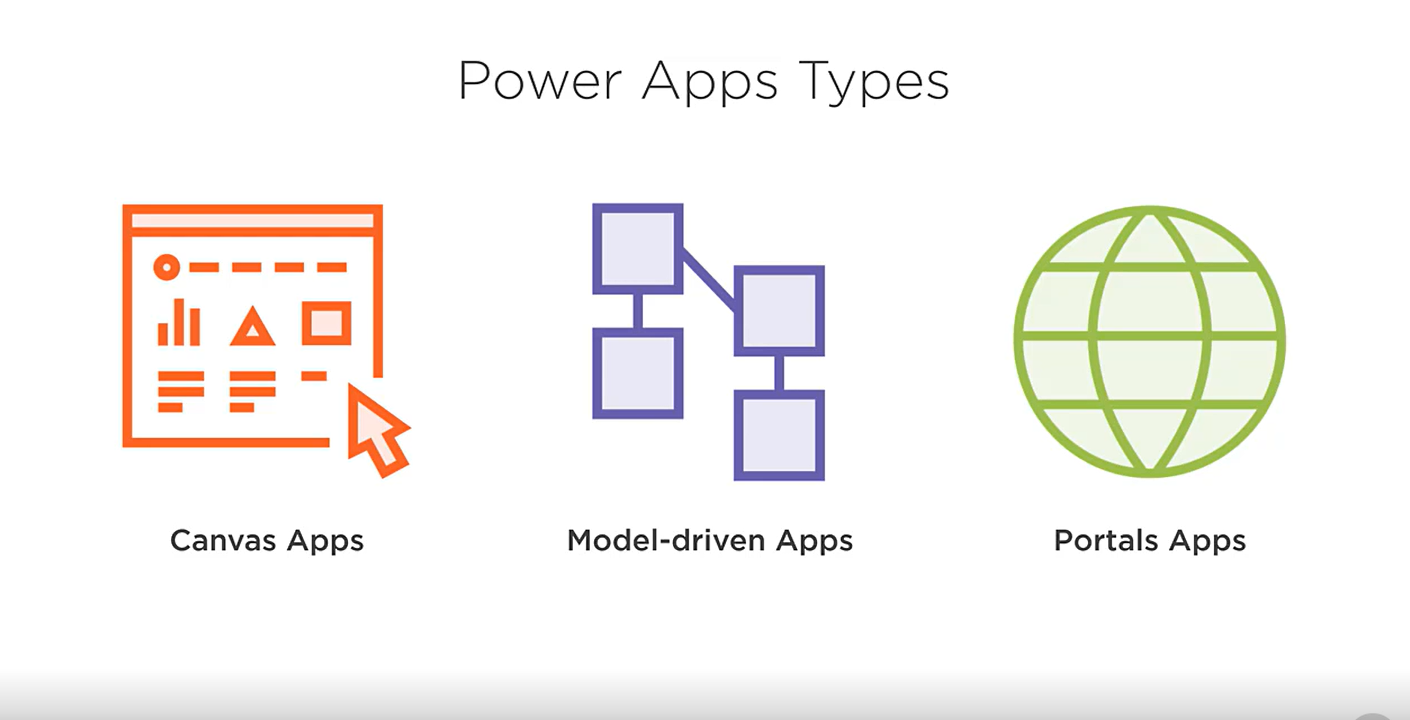
- Power Pages – Portal apps are now know as Power Pages. Microsoft Power Pages is a secure, enterprise-grade, low-code software as a service (SaaS) platform for creating, hosting, and administering modern external-facing business websites. Whether you’re a low-code maker or a professional developer, Power Pages empowers you to rapidly design, configure, and publish websites that work across web browsers and devices.
Excited to dive deeper into Power apps! Stay tuned for our upcoming blog where we’ll explore all types in Power apps one by one.
Power Automate
Power Automate is a cloud-based service provided by Microsoft as part of its Power Platform suite of tools. Formerly known as Microsoft Flow, Power Automate allows users to automate repetitive tasks and streamline business processes without the need for extensive coding knowledge. With Power Automate, users can create automated workflows that integrate with a wide range of applications and services, both within the Microsoft ecosystem and from third-party providers. These workflows can be triggered by various events, such as the creation of a new email, the completion of a form, or the modification of a file in a cloud storage service.
Power BI
Power BI is a powerful business analytics tool developed by Microsoft, designed to empower organizations to visualize and analyze their data effectively. It allows users to connect to a wide variety of data sources, including databases, cloud services, and files, to bring all their data together in one place. With Power BI, users can create interactive reports, dashboards, and visualizations that provide valuable insights into their business operations, performance, and trends. These reports and dashboards can be shared with colleagues and stakeholders, both internally and externally, to facilitate data-driven decision-making across the organization.
Power Virtual Agents (Microsoft Copilot Studio)
Power Virtual Agents is a component of the Microsoft Power Platform that empowers organizations to create and deploy AI-powered chatbots without the need for extensive coding or development expertise. With Power Virtual Agents, users can build intelligent virtual agents that engage with customers, employees, and partners in natural, conversational interactions. These chatbots can be integrated into various channels and platforms, including websites, Microsoft Teams, Facebook Messenger, and more, providing organizations with a versatile solution for automated customer support, information retrieval, and task automation.
Data Platform as a Service
In the context of Microsoft’s Power Platform, Data Platform as a Service (DPaaS) refers to the Common Data Service (CDS) or Microsoft Dataverse (formerly known as Common Data Service for Apps). Microsoft Power Platform is a suite of low-code/no-code tools that empower organizations to analyze data, build solutions, automate processes, and create custom applications.
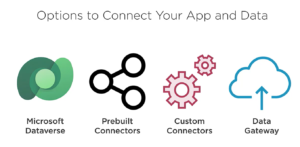
Microsoft Dataverse serves as the underlying data platform for Power Apps, Power Automate, Power BI, and Power Virtual Agents within the Power Platform ecosystem. It provides a secure and scalable database service in the cloud, enabling organizations to store and manage business data effectively.
Conclusion
In conclusion, Microsoft Power Apps is a versatile and powerful solution for organizations looking to transform their business processes and enhance productivity. With its no/low-code approach, extensive integration capabilities, and flexibility, Power Apps empowers users to bring their ideas to life quickly and efficiently. By embracing Power Apps, businesses can stay agile, respond to changing needs, and unlock new opportunities for innovation in the digital era.
Reference
https://learn.microsoft.com/en-us/power-platform/








